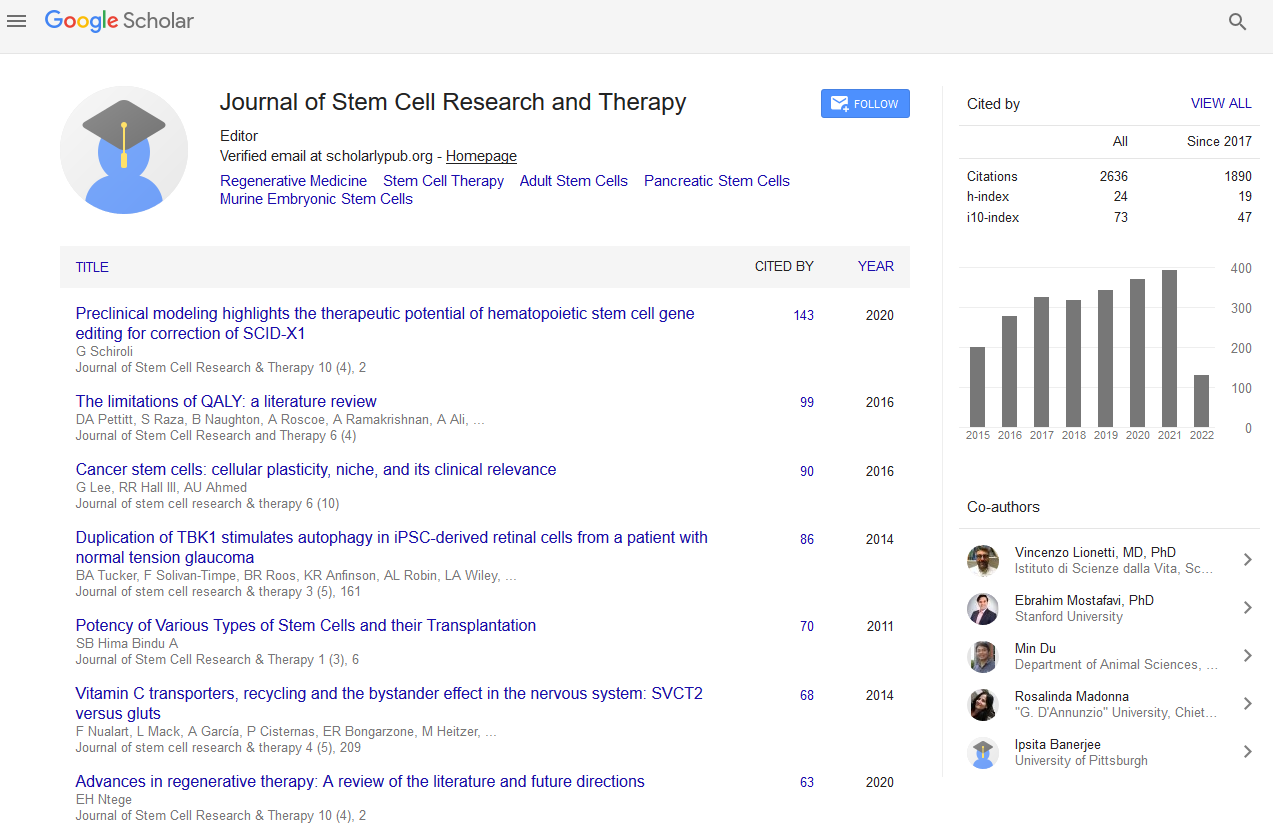Indexed In
- Open J Gate
- Genamics JournalSeek
- Academic Keys
- JournalTOCs
- China National Knowledge Infrastructure (CNKI)
- Ulrich's Periodicals Directory
- RefSeek
- Hamdard University
- EBSCO A-Z
- Directory of Abstract Indexing for Journals
- OCLC- WorldCat
- Publons
- Geneva Foundation for Medical Education and Research
- Euro Pub
- Google Scholar
Useful Links
Share This Page
Journal Flyer

Open Access Journals
- Agri and Aquaculture
- Biochemistry
- Bioinformatics & Systems Biology
- Business & Management
- Chemistry
- Clinical Sciences
- Engineering
- Food & Nutrition
- General Science
- Genetics & Molecular Biology
- Immunology & Microbiology
- Medical Sciences
- Neuroscience & Psychology
- Nursing & Health Care
- Pharmaceutical Sciences
Abstract
Human Umbilical Cord Mesenchymal Stem Cells in the Treatment of Secondary Progressive Multiple Sclerosis
Lu Z, Zhao H, Xu J, Zhang Z, Zhang X, Zhang Y, Liu Z and Xu Y
Background: Multiple sclerosis (MS) is an irreversible and demyelinating disease of the brain and spinal cord that causes significant disability in young people. However, therapeutic options to effectively stop the pathological progression of MS are limited. This study aimed to evaluate the safety and efficacy of human umbilical cord-derived mesenchymal stem cells (hUC-MSCs) in the treatment of secondary progressive multiple sclerosis.
Methods: Eight patients with secondary progressive multiple scleroses were recruited from May 2010 and December 2010. Participants received intrathecal intravenous injections of hUC-MSCs. All patients were evaluated by Expanded Disability Status Scale, frequency of relapse, lymphocyte classification, magnetic resonance imaging (MRI) characteristics and adverse events from before treatment to up to 18 months after the infusion.
Results: The study suggested that, among the eight cases, six showed therapeutic improvement after hUCMSCs treatment and in all eight patients, relapse frequencies decreased to 36.4% of those before the treatment (1.2 ± 0.5 vs. 3.3 ± 0.7, p<0.05). Flow cytometry assay (FACS) indicated that blood T cells and B cells were inhibited after treatment. MRI characteristics also showed decreased volume and severity of lesions, with few adverse events. Conclusion: hUC-MSCs can alleviate disability and reduce relapse of secondary progressive multiple sclerosis by modulating immune responses, which also had been proved to be safe in MS patients. These findings suggest that transplantation of hUC-MSCs may be a potential therapy for MS.


